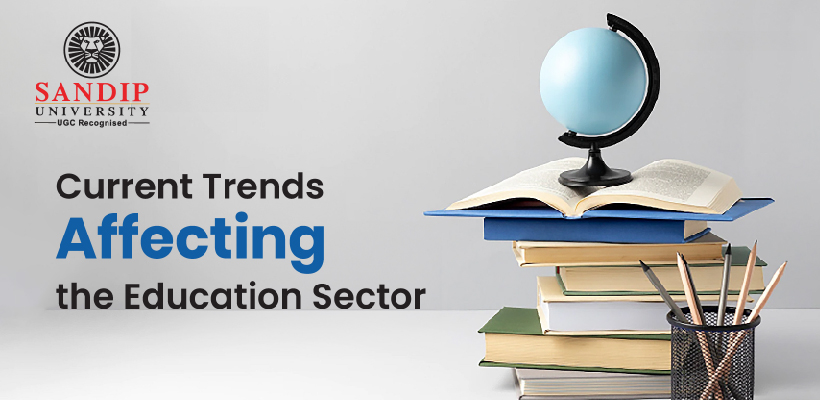In the ever-changing field of education, staying abreast of the latest trends and developments is crucial for educators, policymakers, and students alike. From the integration of technology to the rise of alternative learning models, the education sector is undergoing a profound transformation. Some of the best private universities in Nashik have adopted these trends at the management and curriculum levels to upgrade their educational standards.
Let us explore some of the recent and trending topics shaping education today:
EdTech Revolution
The integration of technology into education has been accelerating rapidly. From interactive learning platforms to virtual reality classrooms, EdTech is revolutionising how students learn and teachers teach. Educators are exploring innovative ways to use technology to improve the learning experience and reach students in a variety of contexts, as the COVID-19 pandemic has accelerated the adoption of online learning.
Personalised Learning
Personalised learning is becoming more popular as educators recognise the importance of catering to individual student needs and learning styles. Adaptive learning platforms, data analytics and AI-powered tutoring systems are enabling educators to customise instruction based on each student’s strengths, weaknesses, and interests. By providing personalised learning pathways, educators can foster greater engagement, competency, and academic success.
Alternative Credentials
Traditional degrees are no longer the sole measure of academic achievement. Alternative credentials, such as digital badges, micro credentials and competency-based assessments are becoming more and more popular as employers seek candidates with specific skills and competencies. These adaptable and stackable credentials allow learners to acquire targeted skills relevant to their career aspirations, enhancing their employability in a rapidly evolving job market.
Diversity, Equity, and Inclusion (DEI)
Diversity, equity, and inclusion are becoming more and more important in the education industry in order to build inclusive learning environments that represent the variety of student experiences and backgrounds. From diversifying curriculum content to implementing inclusive pedagogical practices, educators are striving to address systemic inequities and ensure equitable access to high quality education for all students, regardless of race, ethnicity, gender, or socioeconomic status.
Lifelong Learning
In an era of rapid technology innovation and economic disruption, lifelong learning is becoming increasingly important. In order to be competitive and adaptable, people must embrace lifelong learning as the skills needed in the workforce change. Educational institutions and employers are increasingly offering lifelong learning opportunities, such as online courses, professional development programs and corporate training initiatives, to support continuous skill development and career advancement.
Wellness and Mental Health Support
The well-being of students is receiving greater attention in the education sector, particularly in light of the mental health challenges intensified by the COVID-19 pandemic. Education establishments are prioritising mental health support services, introducing mindfulness programs, and fostering supportive campus environments to address the holistic needs of students and promote emotional well-being.
Conclusion
The education sector is going through a significant transformation, driven by technological innovation, changing pedagogical practices and a growing emphasis on diversity, equity, and inclusion. While navigating these changing currents, it is crucial for educators, policymakers, and stakeholders to remain flexible, adaptive, and committed to fostering inclusive, learner-centric educational environments that empower students to thrive in an increasingly complex and interconnected world.

